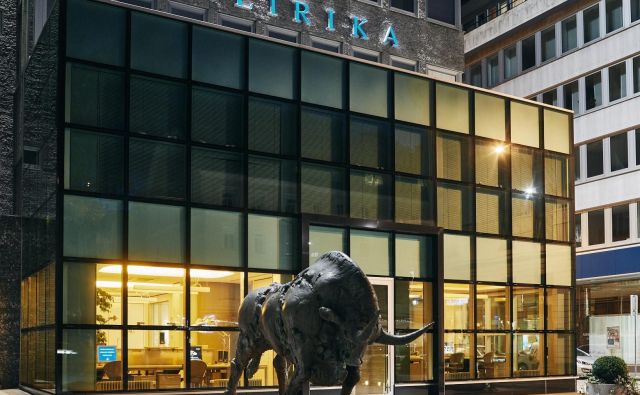DALLAS - The revolution in Egypt has reopened a long-simmering debate about the "freedom agenda" that animated George W. Bush's presidency. Was he right after all, as his supporters have argued? Are they claiming credit he does not deserve? And has President Obama picked up the mantle of democracy and made it his own?
The debate in Washington, and Dallas, tends to overlook the reality that revolutions in far-off countries are for the most part built from the ground up, not triggered by policy made in the halls of the West Wing. But the lessons of the Egyptian uprising will ripple through American politics, policymaking and history-shaping for some time to come.
President Bush, after all, made "ending tyranny in our world" the centerpiece of his second inaugural address, and he considers it one of his signature legacies. Promoting democracy became so associated with him, and with the war in Iraq, that Democrats believed that it was now discredited. Mr. Obama was seen by some supporters as the realist counterbalance. He preached the virtues of democracy in speeches, but did not portray it as the mission of his presidency. When the Green Movement protesters of Iran took to the streets of Tehran, Mr. Obama's relatively muted response generated criticism.
By contrast, foreign policy specialists said, Mr. Obama's embrace of the Egyptian protesters in the last month, if cautious at times and confused by conflicting signals from others in his administration, seemed to suggest a turning point.
"He got on the right side of this thing when a lot of the foreign policy establishment was cautioning otherwise," said Robert Kagan, a scholar at the nonpartisan, Washington-based Brookings Institution.
For Mr. Obama, the challenge may be to define the spread of liberty and democracy as a nonpartisan American goal. Democrats who have long worked on the issue have expressed hope that he can shed the goal's association with Mr. Bush.
Finding the right balance has never been easy. Mr. Bush focused on democracy as a goal after the invasion of Iraq found none of the weapons of mass destruction reported by American intelligence agencies. He elevated it to a central theme in his second inaugural address, according to advisers, to infuse the war on terrorism with a positive mission beyond simply hunting down terrorists. But there was always an internal tension in his administration. Former Defense Secretary Donald H. Rumsfeld makes clear in his new memoir that he thought the emphasis on democracy was misplaced, given the difficulties of transplanting Western-style institutions in regions accustomed to autocracy. Then, in 2006, the election of a Palestinian government led by Hamas quieted some of the administration's ardor for democracy.
Matt Latimer, a former Bush speechwriter, recalled recently that he prepared a ringing speech on democracy for the president to deliver while in Egypt in his final year in office, only to have it rewritten at the last minute. "Demands for reform in Egypt became a mere 'hope' that Egypt might 'one day' lead the way for political reform," Mr. Latimer wrote.
Still, in recent days, former Bush advisers like Elliot t Abrams and Peter Wehner have recalled the former president's calls for change and credited them with setting the stage. "He was right in saying, for the first time, that people in the Middle East wanted freedom as much as people in any other region, and in beginning through diplomacy and programs to help," said Lorne W. Craner, a Bush assistant secretary of state for democracy and currently president of the International Republican Institute.
Mr. Craner said, "His message became conflated with the method of displacing Saddam Hussein in Iraq," and to too many, "the freedom agenda meant invading a country and staying there while I.E.D.'s were going off."
But, he added, "Bush placed us on the right side of history, and that served the interests of democrats in the region, and the United States as well."
Not everyone sees it that way, especially in the Obama White House, where the assertion rankles deeply.
"Was Bush right?" scoffed one Obama adviser. "Give me a break. How many democratic transformations like this took place when he was in office?"
Several, actually, in Ukraine, Georgia, Lebanon and Kyrgyzstan. But later events in those countries also showed that such first steps did not necessarily point in a straight line to lasting Jeffersonian democracy.
Mr. Obama's aides said he has been focused on democracy abroad from the start. But he seems to have found more
of a voice in the last six months.
On August 12, officials said, he issued a formal but unpublicized presidential study directive seeking a review of political reform in the Middle East and North Africa. The following month, he gave a speech at the United Nations in which he declared that "part of the price of our own freedom is standing up for the freedom of others."
Aides to Mr. Obama said he can make progress where Mr. Bush faltered because the current president has made reaching out to the Muslim world a priority and has de-emphasized the idea that the fight against terrorism means a war on Islam.
Mr. Bush also sent such messages, but Obama aides said Iraq and Guantánamo Bay undercut the impact .
"We do not make this about us," said one senior administration official, who was not authorized to be identified. "We very carefully say this is about the people. We're on the sidelines, we never talk about our values, we talk about universal values. Does that create space for these things to happen?" Hopefully so, the official said.
The question then becomes whether democracy promotion will again become a bipartisan aspiration.
Damon Wilson, a former Bush aide and now executive vice president of the Atlantic Council, a Washington-based, nonpartisan think tank, said he was surprised that Mr. Obama did not take ownership of democracy as an issue from the start.
But with Egypt, he now has a chance to do that, Mr. Wilson said, expressing hope that Republicans will not turn away from the notion simply because Mr. Obama is embracing it."Of all the issues to fight on," he said, "democracy is not one where we should be declaring partisan differences."
The Right Side of History*
The Cheers of Tahrir square were heard around the world. But if you listened carefully, you might have heard cheering from another quarter 11,000 kilometers from Cairo, in Dallas.
Objavljeno
18. februar 2011 14.25
 Tiskane izdaje
Tiskane izdaje























